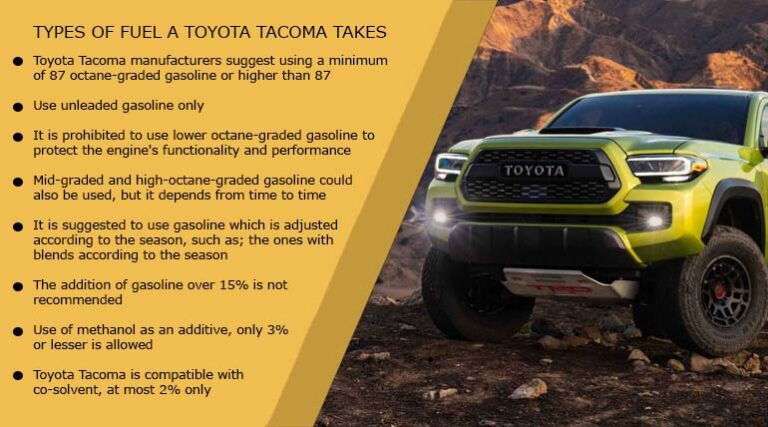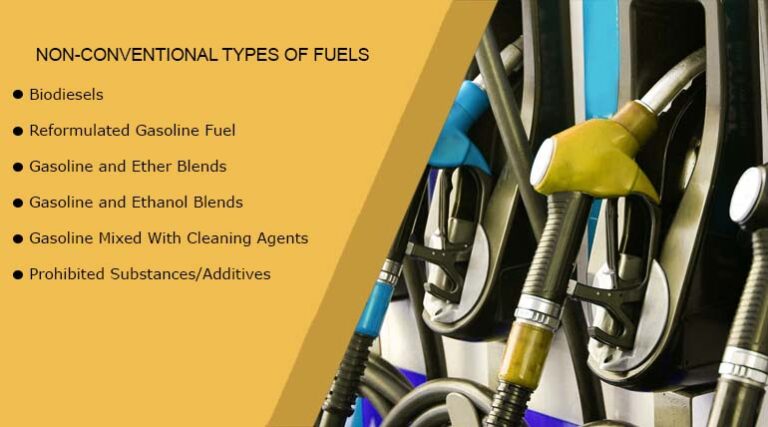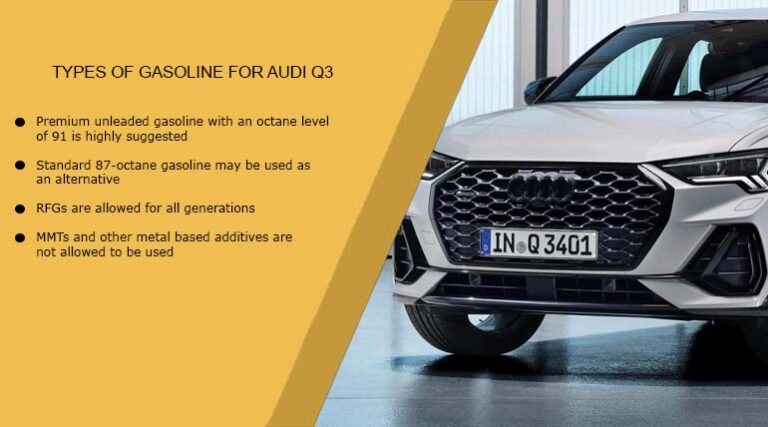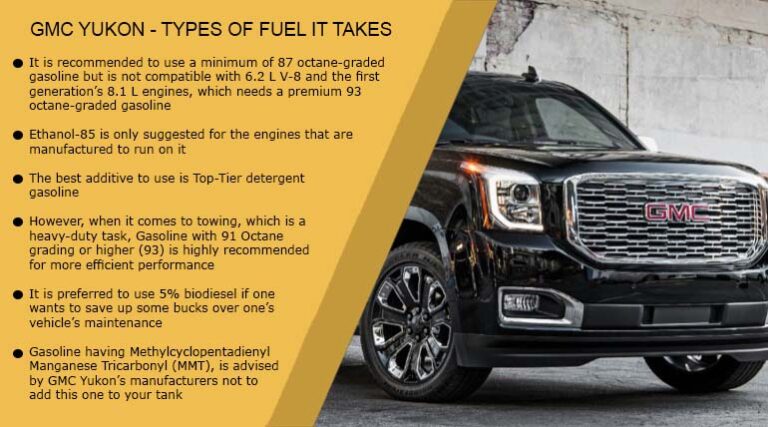Types of Fuel A Ford Focus Requires (All Model Years)
This article is going to cover everything about the exact types of fuel a Ford Focus requires. We will attempt to sort out all of your queries and confusion regarding other possible variations of fuel available in the market for your Ford Focus.
Ford Focus is a unique and amazing line-up of sporty utility automobiles. It has a total of six generations now and is a compact vehicle (In Europe, C-Segment, small-family car). Ford Motor Company manufactured and marketed it back in 1998. It had its first model year from the year 1998, and its production continues till its 4th generation, produced from 2018 till 2021. let’s move further to know about the types of fuel a Ford Focus requires to function well.
To summarize, all the gasoline engines of Ford Focus are compatible with a minimum of 87 octane-graded gasoline or above 87 (Regular, unleaded) for all the models and generations. But Ford Focus’s manufacturers suggest using a premium 93 Octane-graded gas for its 2.5 L Turbo engine and the ones which pair up with a six-speed manual transmission. Use top-tier detergent gasoline to have a better performance. Do not use Ethanol beyond 15%. Manufacturers prohibit the use of E-85 since it will damage the engine.
Related article: Types Of Fuel A Ford Escape Uses
Ford Focus Fuel Type According to Engine’s Type (All Variants & Model Years)
By using the databases of the manufacturers, forums, and reviews of people around the globe driving a Ford Focus, all the data here concerning the correct types of fuel a Ford Focus requires is well-researched and collected to assist you so that you can enjoy fully out of your vehicle. Let’s begin!
The Ford Focus- The Model Years 1998 to 2001 (5-Door)
Following are the engines that Ford Focus (5-door) model years 1998 to 2001 offer;
- 2.0 L Inline-4 (a 5-speed-manual)
- 2.0 L Inline-4 (a 4-speed-automatic)
Both of the above engines run well on a regular gas (pump) 87 Octane-graded, unleaded.
The Ford Focus- The Model Years 1999 to 2001 (Station Wagon)
Following are the engines that Ford Focus (Station Wagon) model years 1999 to 2001 offer;
- 2.0 L Inline-4 (a 5-speed-manual)
- 2.0 L Inline-4 (a 4-speed-automatic)
Both of the above engines run well on a regular gas (pump) 87 Octane-graded, unleaded.
The Ford Focus- The Model Years 2001 to 2005 (5-Door)
Following are the engines that Ford Focus (5-door) model years 2001 to 2005 offer;
- 2.0 L Inline-4 (a 5-speed-manual)
- 2.0 L Inline-4 (a 4-speed-automatic)
- 2.3 L Inline-4 (a 5-speed-manual)
- 2.3 L Inline-4 (a 4-speed-automatic)
- 2.0 L Inline-4 (6-speed-manual)
All of the above engines run well on a regular gas (pump) 87 Octane-graded, unleaded, except for the 2.0 L Inline-4 6-speed manual from the 2002 and 2004 model years. These function well on a premium, minimum 91 and a maximum 93 Octane-graded gasoline.
The Ford Focus- The Model Years 2001 to 2005 (Station Wagon)
Following are the engines that Ford Focus (Station Wagon) model years 2001 to 2005 offer;
- 2.0 L Inline-4 (a 5-speed-manual)
- 2.0 L Inline-4 (a 4-speed-automatic)
- 2.3 L Inline-4 (a 5-speed-manual)
- 2.3 L Inline-4 (a 4-speed-automatic)
All of the above engines run well on a regular gas (pump) 87 Octane-graded, unleaded. Ford Explorer uses similar gasoline types.
The Ford Focus- The Model Years 2005 to 2007 (ST 5-Door)
Following is the engine that Ford Focus (Station Wagon) model years 2005 to 2007 offer;
- 2.5 Inline-4 (20 V Turbo)
This above engine, 2.5 Inline-4 (20 V Turbo), runs well on a premium, minimum 91 and a maximum 93 Octane-graded gasoline.
The Ford Focus- The Model Years 2004 to 2008
Following are the gasoline engines that Ford Focus model years 2004 to 2008 offer;
- 2.0 L Inline-4 (a 5-speed-manual)
- 2.0 L Inline-4 (a 4-speed-automatic)
- 2.3 L Inline-4 (a 5-speed-manual)
- 2.3 L Inline-4 (a 4-speed-automatic)
These model years have a variant which is hybrid. It means it is compatible with both regular gasoline and flex-fuel Ethanol-85 (E-85).
The Ford Focus- The Model Years 2004 to 2007 (Station Wagon)
Following are the engines that Ford Focus model years 2004 to 2008 offer;
- 2.0 L Inline-4 (a 5-speed-manual)
- 2.0 L Inline-4 (a 4-speed-automatic)
All of above engines run well on a regular gas (pump) 87 Octane-graded, unleaded. Though, after the year 2007, Ford discontinued the station wagon (trim), in the USA. Ford Fusion also functions on the similar fuel types.
The Ford Focus- The Model Years 2008 to 2011
Following are the engines that Ford Focus model years 2008 to 2011 offer;
- 2.0 L Inline-4 (a 5-speed-manual)
- 2.0 L Inline-4 (a 4-speed-automatic)
All of above engines run well on a regular gas (pump) 87 Octane-graded, unleaded.
The Ford Focus- The Model Years 2011 to 2018
Following are the engines that Ford Focus model years 2011 to 2018 offer;
- 2.0 L Inline-4 (a 5-speed-manual)
- 2.0 L Inline-4 (a 4-speed-automatic)
- 1.0 L Inline-3 (Turbo, 6-speed-manual)
- 1.0 L Inline-3 (Turbo, auto S6)
- 2.0 L Inline-4 (Auto AM-6)
- 2.0 L Inline-4 (Auto AMS6)
- 2.3 L Inline-4 (a 6-speed-manual)
- 2.0 L Inline-4 (6-speed-manual, flex-fuel variant)
All of above engines run well on a regular gas (pump) 87 Octane-graded, unleaded, except for 2.3 L Inline-4 6-speed-manual, which functions well on a premium, minimum 91 and a maximum 93 Octane-graded gasoline. And 2.0 L Inline-4 which is a Flex-fuel variant, that can function on Ethanol-85 (E-85).
The Ford Focus- The Model Years 2018 to 2021
The Ford Focus model years 2018 to 2021 offer an engine, which pairs up with the auto-shiftable, which needs a regular gas (pump) 87 Octane-graded, unleaded.
Varieties of Fuel Other Than Conventional Gasoline
Today, we have various options when it comes to the types of fuel Ford Focus uses, or our automobiles, from Reformulated Fuel (RFG) to different additives and blends. But the question is, are they even compatible with Ford Focus? Do they have any side effects?
We will address this question quickly in the below section of this article, so Hang On!
Reformulated Gasoline Fuel (RFG)
It is allowed by the Ford Focus manufacturers to consume RFG, whenever it is available, over a non-reformulated gasoline fuel. It is also best recommended for the area having smog at a higher concentration to decrease air pollution.
For cleaner and greener burning, and with a nature-friendly impact, Reformulated Gasoline (RFG) is produced, which causes reduced smog, and less toxic pollutants than regular gasoline, having no negative impacts. It is said to increase the miles per gas number of your vehicle.
Ford Focus Owner’s Suggested Fuel
Ford itself recommends using Top-tier detergent gasoline for its Ford Focus, which keeps the engines clean and away from debris. Use a minimum of 87 octane-graded gasoline (Regular, unleaded).
Use a premium 93 Octane-graded gas for its 2.5 L Turbo engine and the ones which pair up with a six-speed manual transmission.
According to the owner’s manual, always keep a check on the fuel when travelling up the hill or at a higher altitude. Because most of the gas stations offer gas with below 87 Octane rating, which is harmful to the engines, always keep some extra fuel with you when travelling!
Gasoline/Oxygenated Blends for Ford Focus
Ford itself can use oxygenated blends, but their usage requires some regulations and rules to always keep in mind.
For cars after the year 2011, manufacturers recommend consuming less than or equal to 10% of Ethanol (E-10). The addition of gasoline over 15 % is not recommended, according to the owner’s manual of the Ford Focus. Only the flex-fuel are compatible with E-85.
Methanol is highly prohibited from using blended with gasoline and is incompatible.
Gasoline comprising Methylcyclopentadienyl Manganese Tricarbonyl (MMT)
It is suggested by the manufacturers of the Ford Focus not to add any additive which is based on Manganese since it can damage the system of your vehicle that controls the emissions.
Gasoline comprising Methylcyclopentadienyl Manganese Tricarbonyl (MMT) was used to improve the octane of fuel with poor quality and to seize the knocking noise produced by engines back then. It is not recommended by Ford to use for its Ford Focus. If it is used in vehicles in which its usage is not recommended, it can lead to much harm.
Prohibited Additives
Additives prohibited by Ford Focus’s manufacturers include;
- Solvents
- Methanol
- Silicon
- Any metal-based ones
- Kerosene
- Additives based on metals
- Lead-based on fuels.
Gasoline with Added Cleaning Agents
To keep your engine clean, safe, and up to the standards of emission, TOP-TIER detergent gasoline is highly recommended for Ford Focus manufacturers.
It is suggested that the Ford Focus should utilize a gas mixed with a large concentration of agents used for cleaning. Cleaning agents such as; additives are recommended so that your vehicle remains safe from deposits and debris and to keep your vehicle’s engine free from the excessive buildup of Carbon in the valves and injectors. These are readily available with your nearest top-tier retailers. These cleaning additives increase the performance of your car.
Frequent Most Asked Queries!
“My Ford Focus’s Engine Knocks Afterwards Refilling”- What Does It Indicate?
If you put a lower than 87 octane-rated gasoline in your Ford Focus, it degrades the performance and economy of the engine. Gasoline will burn prematurely if one puts a lower-octane gas in a machine with higher compression. It causes an unsmooth burn and engine knock.
Hence, it is highly crucial to use the correct gasoline fuel with the right octane grading.
If you hear a fainted-knocking sound from your Ford Focus engine, it indicates no danger. But if you hear a loud knocking sound from your Ford Focus engine, it is due to the usage of a lower quality and lower octane gasoline. read more about tips for engine maintenance in our recent article.
How to Reduce “Knocking Noise” from My Ford Focus Engine?
To reduce the knocking-like noise in your Ford Focus, fill up your tank with a recommended minimum of 87 Octane-graded gasoline or a mid-graded 91-octane gasoline or greater. Never use lesser than 87 octane-graded gasoline.
What is the Importance of Using the Correct Type of Fuel in Your Ford Focus?
However, now the query arises, why is it so important to know about the correct type of fuel for your Ford Focus? The response to this is simple; to guard your engine against damage and accidents of fire and to keep your warranty away from being void.
Can All the Models of Ford Focus Consume RFGs as Gasoline Alternative?
You must be pondering if all generations of Ford Focus are suitable for using Reformulation Gasoline Fuel, so the answer to this is YES!
Ford Focus can utilize RFGs, as a fuel option whenever it is available since it has also been compulsory for almost nineteen states and regions in the United States of America to use less toxic fuel to protect the quality of air.
How to Locate a Flex-Fuel Vehicle?
Following are the ways to locate a flex-fuel engine in your vehicle;
- A yellow bezel surrounding the inlet of the fuel tank of Ford Focus indicates that your vehicle is flex-fuel. If you are unable to find it there, then you can check out the door of your fuel tank as well.
- But keep in mind to burn all the flex-fuel when you decide to run your vehicle on regular gas, and add at least 3 gallons of flex-fuel in your tank at a time while refilling. After that, drive your vehicle for at least 8 miles.
Ford Focus Drivers’ Reviews – Which Gas Do They Recommend, Regular or Premium Gasoline? Which types of fuel a Ford Focus requires?
After leading revisions from various forums, and reviews of the people using Ford Focus globally, the conclusion about the types of fuel a Ford Focus requires is that; where the regular, unleaded gasoline with 87 Octane-rating has proved to work well for them, the ones using the premium gasoline with 91 or higher Octane rating has proved to work much better for them. According to the owner’s manual, Ford emphasizes on using 87 octane-graded gasoline for its Ford Focus, and to use a premium 93 Octane-graded gas for its 2.5 L Turbo engine and the ones which pair up with a six-speed manual transmission
Many drivers say they feel no obvious difference, while others say; they do feel an obvious difference and recommend using the premium one (91). Some also considered the cost; since the premium ones are a bit more expensive than the regular, unleaded ones, they stick around the 87 Octane-graded ones.
Numerous drivers prohibit using gasoline blended with Ethanol by more than 15%. This results in severe engine damage. But E-85 can be used only with flex-fuel engine.
Conclusion
To conclude the types of fuel a Ford Focus requires, Ford Focus is a unique and amazing line-up of sporty utility automobile. It has a total of six generations now, and is a compact vehicle (In Europe, C-Segment, small-family car). Ford Motor Company manufactured and marketed it back in 1998.
All the gasoline engines of Ford Focus are compatible with a minimum of 87 octane-graded gasoline or above 87 (Regular, unleaded) for all the models and generations. But Ford Focus’s manufacturers suggest using a premium 93 Octane-graded gas for its 2.5 L Turbo engine and the ones which pair up with a six-speed manual transmission.
Use top-tier detergent gasoline to have a better performance. Do not use Ethanol beyond 15%. Manufacturers prohibit the use of E-85 since it will damage the engine.







